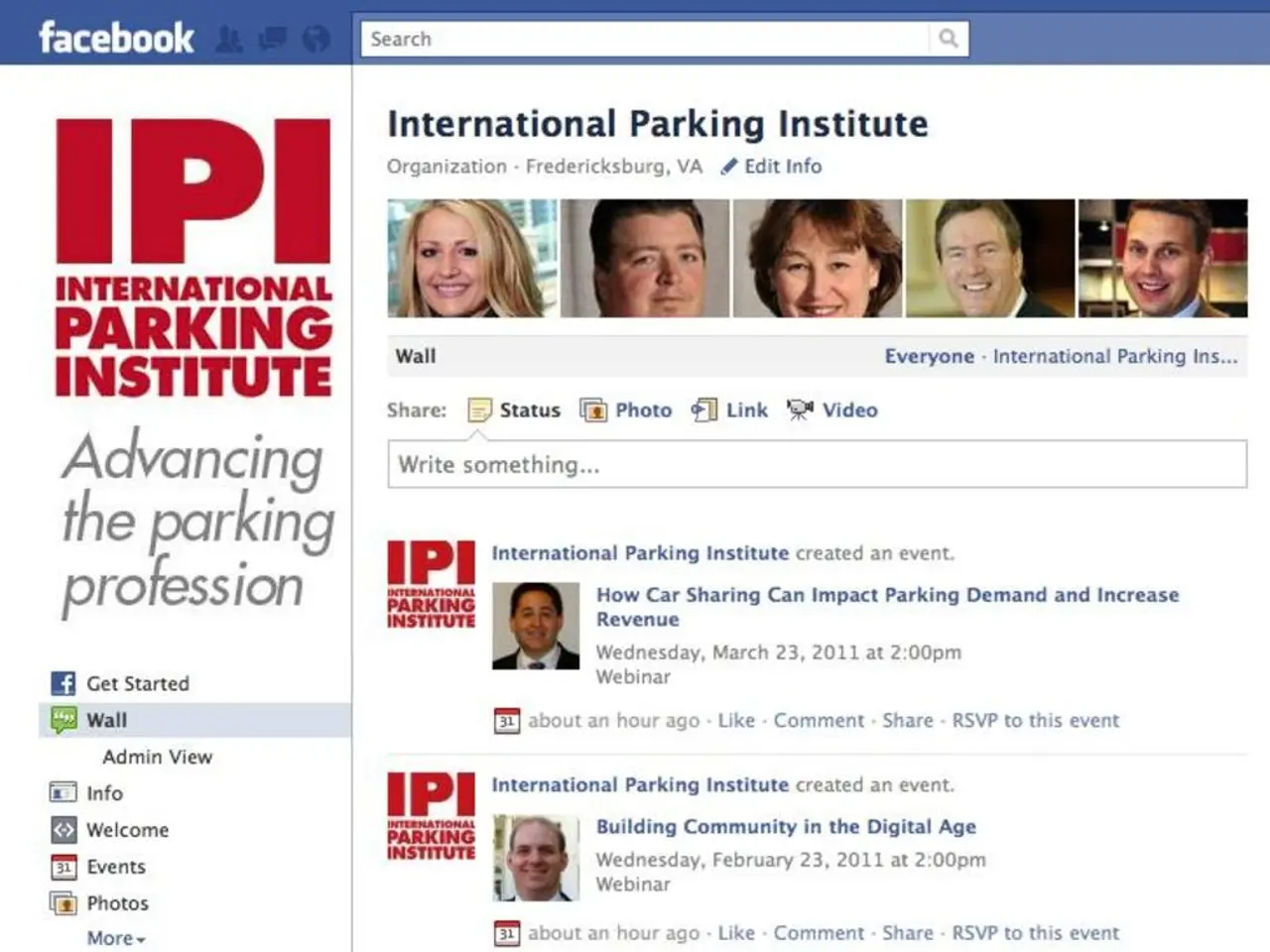Study Reveals Shared Characteristic Among Individuals With Multiple Facebook Contacts
In a recent study, psychologist Phillip Ozimek has suggested that highly materialistic individuals tend to have significantly more Facebook friends than their less materialistic counterparts. This intriguing finding sheds light on the connection between our offline values and digital engagement, offering practical value for those seeking more intentional digital engagement.
The study found that materialistic Facebook users are more likely to "Like" brand pages, indicating consistent behaviour patterns across different platform features. This could be attributed to the fact that Facebook, with its design, facilitates social comparison, allowing users to measure their "collections" against others.
Moreover, the platform delivers instant feedback through notifications, likes, and comments, creating reward cycles that reinforce the collection behaviour. This digital environment, where acquisition comes without financial cost, seems to provide an appealing alternative for materialistic individuals who might otherwise spend money on physical status symbols.
Interestingly, the study suggests that materialistic Facebook users aren't necessarily compensating for social inadequacy. Instead, they're expressing the same values that drive their offline behaviour in a digital environment. For some users, even relatively shallow connections across a broad network create a sense of belonging to wider communities with shared interests or backgrounds.
The study's findings challenge the common narrative that high social media use inherently signals psychological distress. Instead, they offer a glimpse into how our fundamental values manifest online. Materialistic people spend substantially more time browsing Facebook and are considerably more likely to compare their lives to others through the social network.
However, it's important to note that maintaining a large network of connections on Facebook can provide practical advantages in professional contexts, offering more potential job leads, business opportunities, and information sources. Active engagement with social platforms also develops valuable digital communication skills increasingly relevant in modern professional environments.
A wider friendship network potentially exposes users to more diverse perspectives and ideas, which can broaden horizons and challenge existing viewpoints. The researchers do not present their findings as criticism of materialistic Facebook users, stating that "there is nothing inherently wrong or bad about the way materialistic people use social networking."
Future research directions might explore how platform design changes influence materialistic behaviours, whether similar patterns exist across different social networks, and how these behaviours translate to professional networking platforms like LinkedIn. The Social Online Self-Regulation Theory provides a valuable framework for understanding the psychological drivers behind different usage patterns on social media.
In conclusion, the discovery that materialistic people tend to accumulate more Facebook friends reveals that our digital behaviours often reveal more about our underlying psychology than we might realize. As we continue to navigate the digital landscape, understanding these connections can help us engage more intentionally and authentically with the online world.
Read also:
- Fitbit Versa 4 Experiences Continuous Price Drops on Amazon
- Asthma Diagnosis: Exploring FeNO Tests and Related Treatments
- Affirmative treatment for one's gender: Variations, advantages, and additional information
- Exclusive: Richest Saudi resident orders custom $3.4 million Pagani Utopia, a 1-of-a-kind creation, to honor his grandmother








